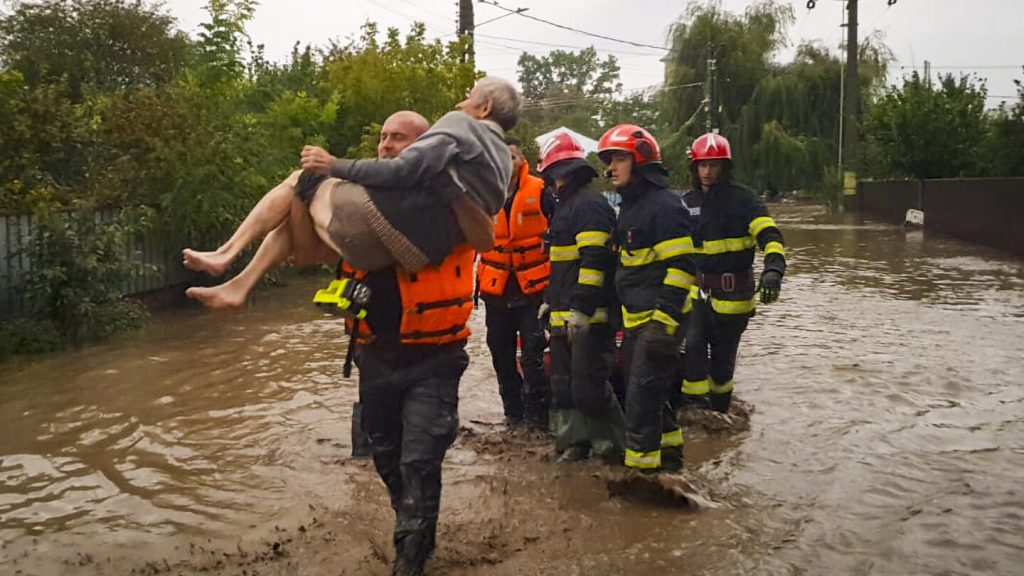Recent severe storms in Romania and other central European countries have caused widespread flooding and devastation. In eastern Romania, four people were found dead after torrential rains led to unprecedented flooding in the counties of Galati and Vaslui. Emergency services worked tirelessly to rescue hundreds of stranded individuals, with footage showing rescuers using small boats to evacuate people and carrying older individuals to safety. The storm affected 19 localities in eight counties, with significant damage reported in Galati where 5,000 households were affected. Authorities sent out text message alerts to warn residents of adverse weather conditions as they rushed to remove floodwaters from homes. By Saturday afternoon, more than 250 people had been evacuated with the help of 700 interior ministry personnel.
Romanian Environment Minister Mircea Fechet noted that some areas experienced over 160 liters of rain per square meter, a rare and extreme occurrence. The minister emphasized the importance of saving lives amidst the unfolding crisis. Romanian President Klaus Iohannis extended his condolences to the victims’ families and highlighted the need to strengthen preparedness for extreme weather events. He acknowledged the impact of climate change on these disasters, noting the increasing frequency of extreme weather phenomena across Europe. Central European countries like the Czech Republic, Poland, Austria, Germany, Slovakia, and Hungary were also bracing for intense flooding over the weekend, with rivers reaching dangerous levels and evacuations taking place.
In the Czech Republic, high river waters necessitated the evacuation of hundreds of people, including from a hospital in Brno, the second-largest city. Additional missing and swept-away individuals were reported, prompting authorities to issue flood warnings in over 70 areas. In Austria, 24 villages were declared disaster zones, with residents being evacuated as torrential downpours caused water levels to rise, particularly along the Danube River and its tributaries. Similar flooding impacts were observed in Moldova, where emergency workers pumped floodwater from homes and addressed electricity outages in several localities.
Meteorologists pointed to a low-pressure system originating from northern Italy as the cause of heavy rainfall in the region, affecting countries like the Czech Republic, Poland, and neighboring areas. Leaders in affected countries emphasized the need to be prepared for worst-case scenarios, with some areas facing challenges of historical dimensions due to unprecedented weather conditions. In Poland, evacuations and precautionary measures were taken as rainfall continued to intensify, leading to flooded roads and buildings. The extreme weather pattern follows a hot start to September in the region, with scientists attributing the intensity of the storms to human-caused climate change. As countries grapple with the aftermath of the severe weather events, the focus remains on rescue and relief efforts to minimize further loss of life and damage.















